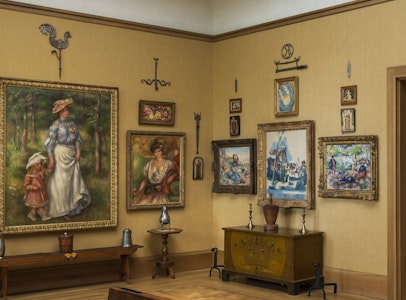Take a Class
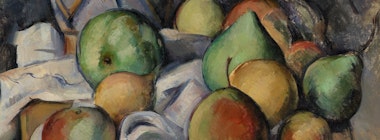
Study art history at the Barnes, a leader in art education since 1925. Come learn in our galleries, or take classes online using our immersive, state-of-the-art platform that brings you closer to the work than ever before.

Gift Artfully: Admission, Classes, Tours, Membership and More
Give the gift of the Barnes to family, friends, and colleagues.
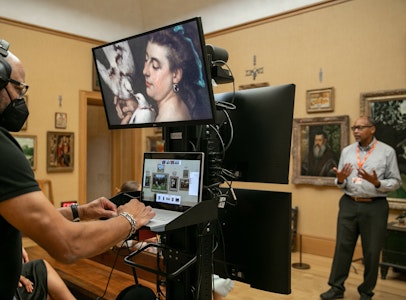
Online Art History Classes: Enroll Today
The Barnes has been an innovator in art education for 100 years. For a limited time, sign up to receive 10% off your first class.
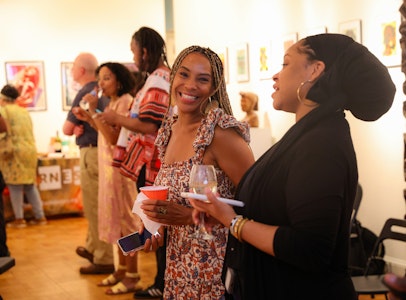
Barnes North
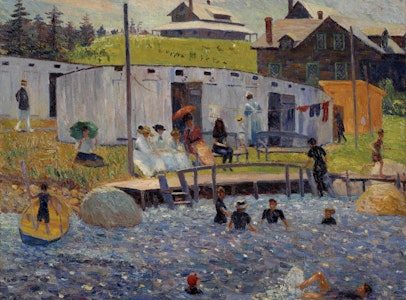
Highlights Tour
This one-hour tour is perfect for first-time visitors. Explore highlights of the collection and learn the history of the Barnes.
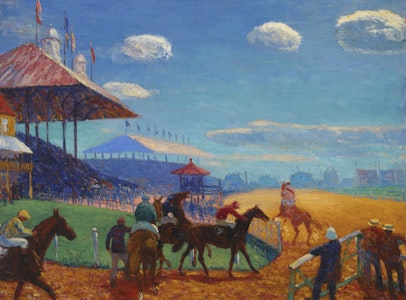
Private Collection Tour
Explore highlights of the collection and learn the history of the Barnes. This tour is a private one-hour experience for you and up to nine guests.

Private Collection Tour: Favorite Artists
Choose your favorite artists in the collection for a private one-hour experience for up to ten guests.

Daily Gallery Talks
Every day, our gallery specialists offer talks about the Barnes collection. Learn more about our history, founder, and collection.
Research Notes:
November 2024
New theories and recent discoveries from the Barnes’s curators, scholars, conservators, and archivists.
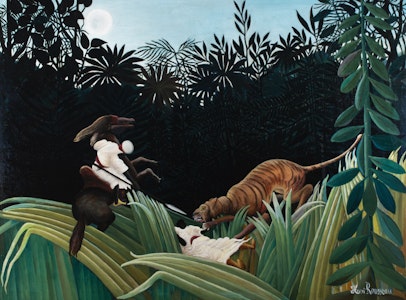
In Focus: Henri Rousseau
Study Rousseau’s enigmatic paintings using our state-of-the-art interactive platform. Zoom in on his strange imagery, and discover why Rousseau continues to captivate.
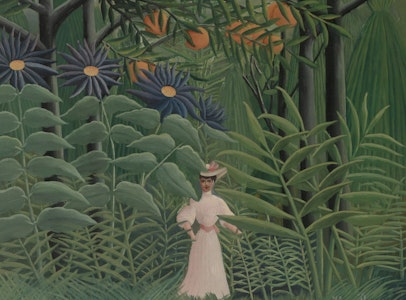
Exhibition Tour: Henri Rousseau: A Painter’s Secrets
Take a deep dive into this landmark exhibition that reexamines the work of the self-taught artist.
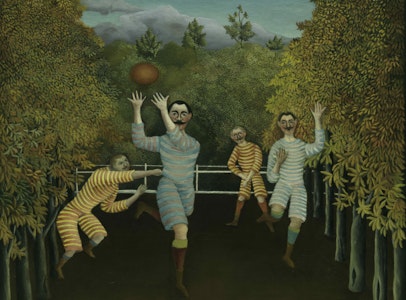
Private Tour: Henri Rousseau: A Painter’s Secrets
This docent-led tour of Henri Rousseau: A Painter’s Secrets is a private one-hour experience for you and up to nine guests.

Members-Only Tour: Henri Rousseau: A Painter’s Secrets
Members are invited to exclusive tours of Henri Rousseau: A Painter’s Secrets in the Roberts Gallery.
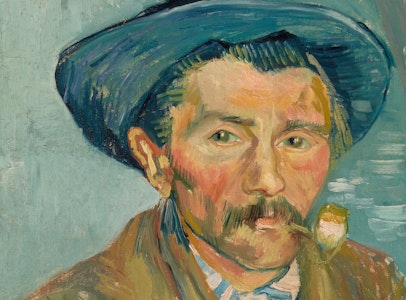
December Spotlight Tour: Radical Visionaries: Van Gogh, Pippin, and Beyond
Explore the self-taught and rebellious painters in the collection who broke new ground with their work.

Rousseau Film Series: Uncle Boonmee Who Can Recall His Past Lives
This series, curated by BlackStar Film Festival founder Maori Karmael Holmes, reflects on themes in Henri Rousseau: A Painter’s Secrets.

Book Talk: Deborah Willis on Reflections in Black
The artist and historian discusses the 25th anniversary edition of her groundbreaking book of Black photography.

Members-Only Online Tour: Henri Rousseau: A Painter’s Secrets
This exclusive online tour offers members up-close views of the exhibition.

Member Appreciation Days
This December, members get even more! Join us for exclusive talks and extra discounts.

Member Appreciation Talk: Erin Monda on Calder Gardens
Learn about the creation and care of the landscape at Calder Gardens with the site’s horticulture manager.
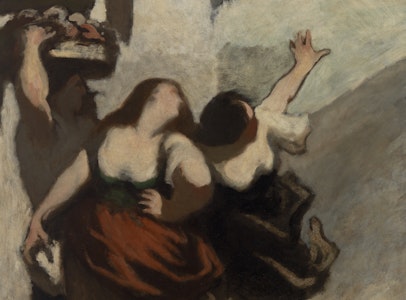
January Spotlight Tour: The Life Cycle of a Painting
Explore the creative processes of renowned artists such as Cézanne and Picasso to understand how they developed their works.

First Friday: Luke Carlos O’Reilly & Emily Braden
Celebrate the new year with soulful jazz from pianist Luke Carlos O’Reilly and singer Emily Braden.

PECO Free First Sunday Family Day: Sweet Sound
Start off the new year with us! Enjoy musical performances, family-friendly art activities, and free access to the collection and Henri Rousseau: A Painter’s Secrets.

Surrealism, Then and Now
Revisit the movement’s origin and global expansion and consider its legacy today. Instructor: Naina Saligram

Caravaggio: Revolutionary Painter of the Roman Baroque
Learn how Caravaggio rejected classical idealism for raw naturalism, fueling works with psychological intensity. Instructor: James Harper

Famous Heists: Crimes in the History of Art
An in-depth look at art crimes, including museum heists, stolen artifacts, and forgeries that fooled the world. Instructor: Caterina Y. Pierre

Rousseau Film Series: Shorts Program
This series, curated by BlackStar Film Festival founder Maori Karmael Holmes, reflects on themes in Henri Rousseau: A Painter’s Secrets.

Deep Dive: Martyrdom of Saint Lawrence
Explore this religious scene in-depth with Penn MA student Nina Huang. Free with admission; Room 2

Members-Only Online Tour: Henri Rousseau: A Painter’s Secrets
This exclusive online tour offers members up-close views of the exhibition.

Online Member Orientation
New members are invited to join us online to learn more about the perks of membership at the Barnes.

Close-Looking Immersion: Rousseau’s Scouts Attacked by a Tiger
Spend an hour exploring this magnificently theatrical jungle scene. Instructor: Kaelin Jewell

The Traditions of Art
Trace art’s evolution from ancient to modern times while immersed in the Barnes collection galleries. Instructor: Kaelin Jewell

The Elements of Art
Learn the core principles of visual art by studying works in the Barnes collection. Instructor: William Perthes

Members-Only Online Tour: The Life Cycle of a Painting
This exclusive virtual tour gives a detailed look at how artists create their works.

Collection Concentration: Exploring American Arts
Explore American art and identity—from Glackens and Pippin to folk crafts and design. Instructor: William Perthes
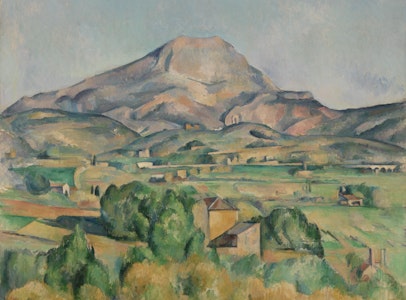
The Elements of Art
Learn basic aesthetic principles and discover art’s communicative power by studying works in the Barnes collection. Instructor: Kaelin Jewell

Sound and Color: Listening to Cézanne’s Paintings
Connect Cézanne’s paintings to compositions by Mozart, Beethoven, and others in this sensory-rich workshop. Instructors: Alison Boyd, Kaelin Jewell
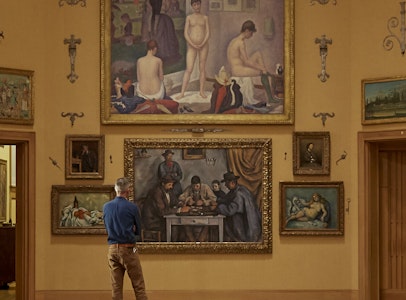
The Art of Looking: An Introduction to the Barnes Method
This interactive online course will teach you the basics of the Barnes Method of studying art, at your own pace.

February Spotlight Tour: The Life Cycle of a Painting
This tour guides you through the process of creating a work of art and allows you to step into the mind of great artists.

Art and Censorship in the 21st Century
Art censorship is on the rise worldwide. Explore the causes and implications of this alarming trend. Instructor: Gareth Harris

Exhibition Seminar: Henri Rousseau: A Painter’s Secrets
Explore the dreamlike imagery of Henri Rousseau up close in our exhibition gallery. Instructor: Martha Lucy

Exploring Impressionism: Modernity Painted in Broad Strokes
Learn about the radical artists who broke from tradition to represent the modern world around them. Instructor: Larissa Bailiff

In the Studio with Degas
Explore Degas’s process and learn classic drawing methods in a hands-on setting. Instructor: Michael Kowbuz

First Friday: Küf Knotz & Christine Elise
Enjoy performances blending hip-hop, soul, and classical sounds, plus after-hours access to our galleries.

Deep Dive: Klee’s Place-Signs
An in-depth discussion about the painting with Penn MA student Nina Huang. Free with admission; Room 17

Members-Only Online Tour: The Barnes Collection
See favorite works like never before, with up-close looks that reveal more about the art and artist.

Members-Only Online Tour: Henri Rousseau: A Painter’s Secrets
This exclusive online tour offers members up-close views of the exhibition.

The Harlem Renaissance in Philadelphia
Uncover Philadelphia’s connections to the Harlem Renaissance and the movement’s enduring legacy on the city. Instructors: Alison Boyd, Zita C. Nunes

Members-Only Talk: Merchandising a Museum Shop
Learn how the Barnes team develops custom products and creates a one-of-a-kind shopping experience.

Member Orientation
New members are invited to join us to learn more about the perks of membership at the Barnes.

Close-Looking Immersion: Manet’s Laundry
Using a meditative approach, this hour-long session offers an in-depth look at Manet’s masterful composition. Instructor: William Perthes

Members-Only Online Tour: The Life Cycle of a Painting
This exclusive virtual tour gives a detailed look at how artists create their works.

Graduate Student Symposium on the History of Art—Keynote Lecture
Historian Steven Nelson presents “Why the Underground Railroad Matters.”

Graduate Student Symposium on the History of Art
Discover innovative research and new perspectives shaping the field of art history.

The Art of Display: Exploring the Barnes Ensembles
Uncover connections hidden in plain sight by studying Dr. Barnes’s enigmatic displays of art at your own pace.
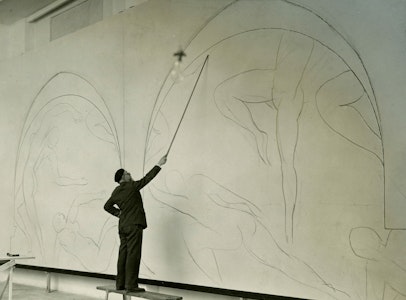
March Spotlight Tour: Matisse, Dr. Barnes, and The Dance
Tour our collection of paintings by Henri Matisse and learn how a visit to the Barnes collection was a pivotal moment in the artist's career.

The Gilded Age: Art, Industry, and the Making of American Culture
Explore the relationship between art and industry during the Gilded Age and the era’s cultural legacy. Instructor: Caterina Y. Pierre

First Friday: Katie Oberholtzer
The award-winning jazz vocalist brings her fresh, expressive voice to the Barnes.
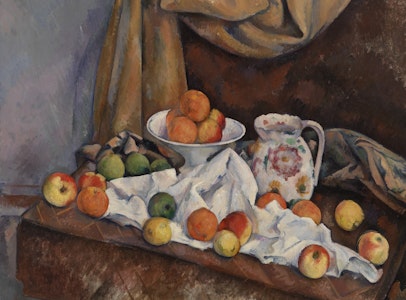
Deep Dive: Cézanne’s Still Life
An in-depth discussion about Still Life with Penn MA student Nina Huang. Free with admission; Room 8

The Nabis: Late 19th-Century Prophets of the New
Explore the legacy of this group of early modern trailblazers. Instructor: Larissa Bailiff

Online Member Orientation
New members are invited to join us online to learn more about the perks of membership at the Barnes.

Members-Only Online Tour: Matisse, Dr. Barnes, and The Dance
Members are invited to attend this exclusive tour about Matisse at the Barnes.

17th-Century Dutch Art’s “Holy Trinity”: Hals, Rembrandt, and Vermeer
Examine Hals, Rembrandt, and Vermeer through deep-zoom analysis and cultural context. Instructor: Wayne Franits

Close-Looking Immersion: Gritchenko’s Fortified Town
Take a deep dive into this cityscape by Ukrainian artist Alexis Gritchenko. Instructor: Kaelin Jewell

Members-Only Evening Tour: Matisse, Dr. Barnes, and The Dance
Learn more about this monumental mural while exploring works from across our Matisse collection.

Being Present with Art: Cultivating Equanimity for Spring
This course is an opportunity to immerse yourself in the collection and learn mindfulness-based stress reduction meditation. Instructor: Roksana Filipowska
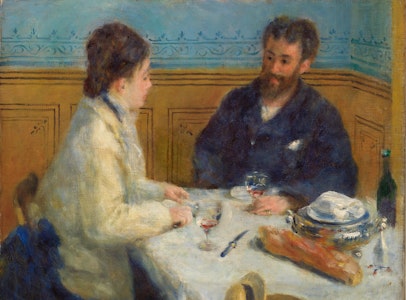
In Focus: Pierre-Auguste Renoir
An introduction to Renoir’s life and work, with interactive videos that let you explore his canvases up close. See why Renoir is more than just rosy cheeks and cute babies.

The Art of the Late Medieval Book: Illuminated Treasures at the Met
Explore some of the great Western medieval manuscripts in the museum’s collections. Instructor: C. Griffith Mann

The Restless Modernism of John Singer Sargent
Explore Sargent’s artistic evolution, from his Paris training to his “restless” portraits in London, and consider his place in modern art. Instructor: Susan Sidlauskas

Size Does Matter: A History of Miniatures in Art
What makes miniatures so fascinating? And what compels artists to work on such a tiny scale? This course shines a spotlight on the art of miniatures. Instructor: Julie Steiner

Monet at Giverny
Explore Monet’s final decades at his home and gardens in Giverny, where he created his iconic Water Lilies series. Instructor: Martha Lucy

Close-Looking Immersion: Cézanne’sGinger Jar
Discover hidden details in this hour devoted to observing and discussing the Cézanne still life. Instructor: William Perthes

Discovering Matisse’s Studio with Goldfish
Look closely at Matisse’s vibrant studio scene and its daring composition. Instructor: Cindy Kang
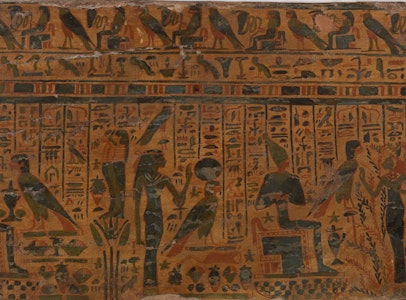
In Focus: The Ancient World
A fresh look at ancient art. Learn about works from ancient Egypt, Greece, and Rome.

The Femme Fatale in Art, Film, and Pop Culture, 1890 to Now
Study the mysterious femme fatale, an archetype for exploring themes of gender, power, sexuality, and morality across art forms. Instructor: Martha Lucy

Abstraction in Modern Art
Studying artists as diverse as Hilma af Klint, Paul Klee, and Joan Miró, this course explores abstraction between the 1900s and 1950s. Instructor: Francesca Ferrari

Close-Looking Immersion: Renoir’s Young Mother
Take a deep dive into what is perhaps Renoir’s modern, secular take on the Madonna and Child subject. Instructor: Kaelin Jewell

Decades of Change: American Art and Culture 1950–70
See how postwar American art reflected innovation, protest, and social change. Instructor: Matthew Palczynski

The Hudson River School in Context
Explore 19th-century landscape painting and its politics through deep-zoom analysis. Instructor: William L. Coleman

Exhibition Seminar: Freedom Dreams
Discuss Black artistic futures and representation in the exhibition Freedom Dreams. Instructor: James Claiborne

Sound and Color: Music and Landscape
Discover how composers and painters intertwined sound and scenery in art. Instructor: William L. Coleman

Cézanne: The Battle of the Bathers
Compare Cézanne’s Bathers paintings through guided close looking and deep-zoom study. Instructor: Naina Saligram

Sicily: Crossroads of Art and Culture
Explore the island’s rich artistic history from antiquity to the early modern era. Instructor: Kaelin Jewell

Close-Looking Immersion: Pissarro’s Garden in Full Sunlight
Examine Pissarro’s radiant brushwork using guided close looking and deep-zoom technology. Instructor: William Perthes

Being Present with Art: Practicing Openness
Use mindfulness and guided looking to cultivate openness and creative presence. Instructor: Roksana Filipowska

Saint Joseph’s University Museum Education Graduate Program
A collaboration with SJU, this new program prepares future museum educators for roles in public and private institutions.
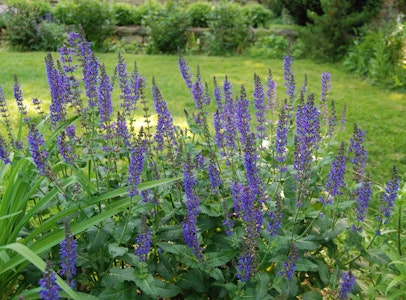
Horticulture Certificate Program
Our two-year certificate program covers horticultural science, methods, and design.
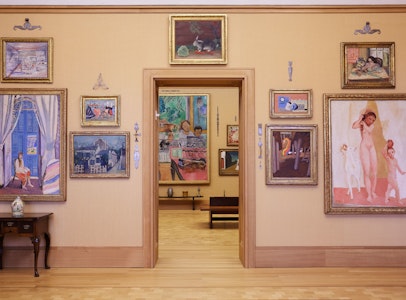
The Barnes–de Mazia Certificate Program
This special track offers an immersion in the Barnes Method and an introduction to other interpretive approaches.

Art, Well-Being, and Medicine
Our group workshops help medical students and healthcare professionals develop a more empathetic, humanistic approach to patient care.
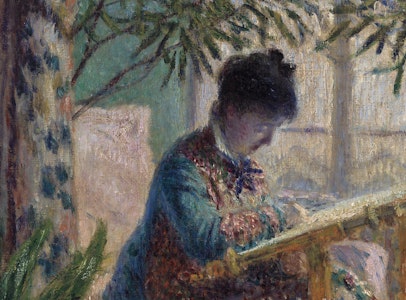
Gift a Barnes Class
Give the gift of lifelong learning with art history classes taught by Barnes experts.
